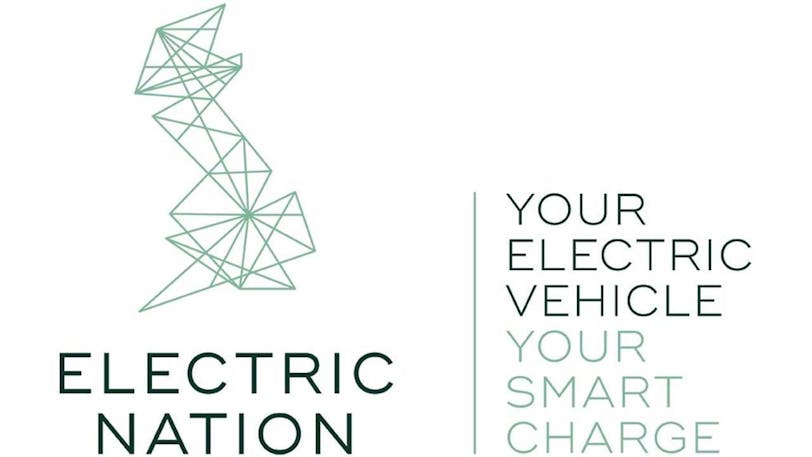Key insights into smart charging from Electric Nation trial
Final results of the Electric Nation project show that smart charging can help to manage the impact on the grid from increasing numbers of electric vehicles.
- DriveElectric has first-hand experience about the charging behaviours of electric vehicle users, and their attitudes towards smart charging, from involvement in three-year Electric Nation smart charging trial
- Trial has shown that smart charging can be used to manage charging away from peak electricity demand periods
- Smart charging can allow electric vehicle drivers to charge at home with no impact on their ability to use their EVs as they wish, while reducing the need for upgrades to electricity networks
About the Electric Nation project
DriveElectric recruited 700 EV drivers to take part in the three-year project and managed the process of installing smart chargers at participants’ homes, as well as being responsible for all customer-facing activity. Half of the electric vehicle drivers also trialled DriveElectric’s Crowd Charge app, which enabled people to interact with the smart charging system.
Electric Nation, the world’s largest home smart charging project – with the trial element carried out over 18 months – has announced the project results at today’s ‘Smart Charged’ conference at the British Motor Museum, Gaydon.
Electric Nation has been collecting data to expand understanding of the impact of the home charging of EVs on local electricity networks, and to evaluate the reliability and acceptability of smart charging to EV owners.

The Results
As the numbers of electric vehicles on the UK’s roads are set to rise, the final results of the Electric Nation trial show that smart charging combined with time of use electricity tariffs can help to manage the potential impacts of EVs on the domestic (low voltage) electricity network and save EV drivers money.
During the trial, data was collected for more than a million charging records, showing that the most popular times to plug in EVs is during the evening peak (5pm – 7pm) on weekdays, when the majority of drivers get home from work.
On average, vehicles are plugged in for over 12 hours, but they only take electricity for 1.5 hours in that time. This shows that there is sufficient flexibility to manage charging away from peak electricity demand periods.
The trial has also proven that managing demand from EVs through smart charging is technically feasible, and that it is acceptable to the majority of trial participants.
Time of Use incentives – such as cheaper electricity rates at off-peak times – appear to be highly effective at moving demand away from the evening peak, particularly when supported by smart charging (with an app), which makes it simple for the user. If there is no incentive, the EV charging demand in the evening peak requires management.
Smart charging can support the introduction and management of Time of Use-based charging. It can also provide a means to manage any negative consequences of mass uptake of Time of Use incentives, i.e. in the event that such incentives resulted in a peak in charging at the time when cheaper tariffs start.
The Electric Nation project is hosted by Western Power Distribution (WPD) and delivered by a partnership of EA Technology, DriveElectric, Lucy Electric GridKey and TRL. The project is funded via Ofgem through its Network Innovation Allowance scheme. The trial took place in the WPD network areas in the Midlands, South West and South Wales.
“The Electric Nation project shows that smart charging can help to reduce the load on the grid from EVs at peak times, and there has been an overwhelmingly positive attitude towards smart charging from participants.”
Conclusions
The Electric Nation smart charging trial recruited almost 700 EV owners, with more than 40 different makes and models of plug-in vehicles, including battery electric vehicles and plug-in hybrids (PHEVs) with a selection of battery sizes. The project monitored participants’ charging habits to gather data on plug-in behaviour including frequency, length and amount of energy consumed.
The trial concluded with participants being financially incentivised to change their charging behaviour, producing clear indications that this could be a successful strategy for addressing distribution network congestion issues that could be created by home EV charging.
Other conclusions from the project suggest that the average charging event for a pure EV starts with the battery already more than 50% full, and the average EV owner only charges their EV three times a week. This is more frequent for plug-in hybrids, but PHEVs consume less power for shorter periods.
As part of the Electric Nation project, DriveElectric is also running a mini feasibility trial to investigate the impact on driver experience of the first single phase, home-based, production Vehicle to Grid (V2G) chargers installed in customers’ homes in the UK, providing grid services such as charging demand reduction or exporting power from the car battery to the local electricity network.
The Electric Nation trial results will help Western Power Distribution improve its understanding of the impact of EVs on its networks and how this impact could be reduced through energy suppliers using smart chargers alongside customer incentive schemes.
The completion of the trial comes after almost three years of hard work for the Electric Nation partners, in particular DriveElectric, the lead on recruitment for the project since late 2016, and EA Technology, the technical lead.
Further details about the results of the Electric Nation trial are available via the WPD Innovation website: https://www.westernpower.co.uk/innovation